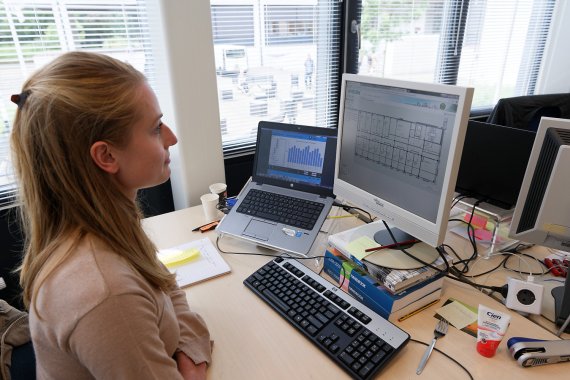How do you convince people to use water and electricity more efficiently? A financial incentive sometimes helps. But not always. And what can you do in hotels, where guests do not directly pay for the use of water and electricity? With a series of experiments the PhD student Anouk Griffioen tests several incentives.
Place of the operation are some of the rooms of The Student Hotels in The Hague, Rotterdam and since this spring also Amsterdam. Griffioen watches over the shoulders of about 250 guests. From behind her desk she can for example see how high the thermostat is, when somebody is present, and how long they take a shower. In short, when and how much water and electricity is used. Big Sister is watching them.
Griffioen smiles at the comparison. The data is relatively private, but he ‘victims’ know, they have agreed and the data is used anonymously. The research that she is performing is a continuation of an experiment which a master student performed a couple of years ago. The student got the guests to sign a statement in which they promise to save water and power. Subsequently they did or did not receive a small gift for themselves or for somebody else.
The result was remarkable. A statement commitment and a present for themselves was shown to have effective. But no statement and a present for somebody else also worked. With her research Griffioen continues on these findings. She does not make guests sign a statement, but lets them form concrete or abstract goals. ‘How will you save water, as opposed to, why would you want to save water. Those alternatives are linked to a present for themselves or for someone else.’
Griffioen expects that also here the combination of abstract goals and a present for another will have effect. They both appeal on the same level of abstract thinking. Moreover, the combination with a concrete goal and concrete present also works. Both other combinations score lower or not at all, because the abstract levels do not match. The first results support Griffioen’s expectations.
The experiments in The Student Hotels are a collaboration between Wageningen University, The Student Hotel, Bectro Installatietechniek and network company Alliander. Recently also the AMS institute from Amsterdam joined. Apart from Griffioen the Wageningen team consists of project coordinator Simone Lindhout and project leader Michel Handgraaf.

